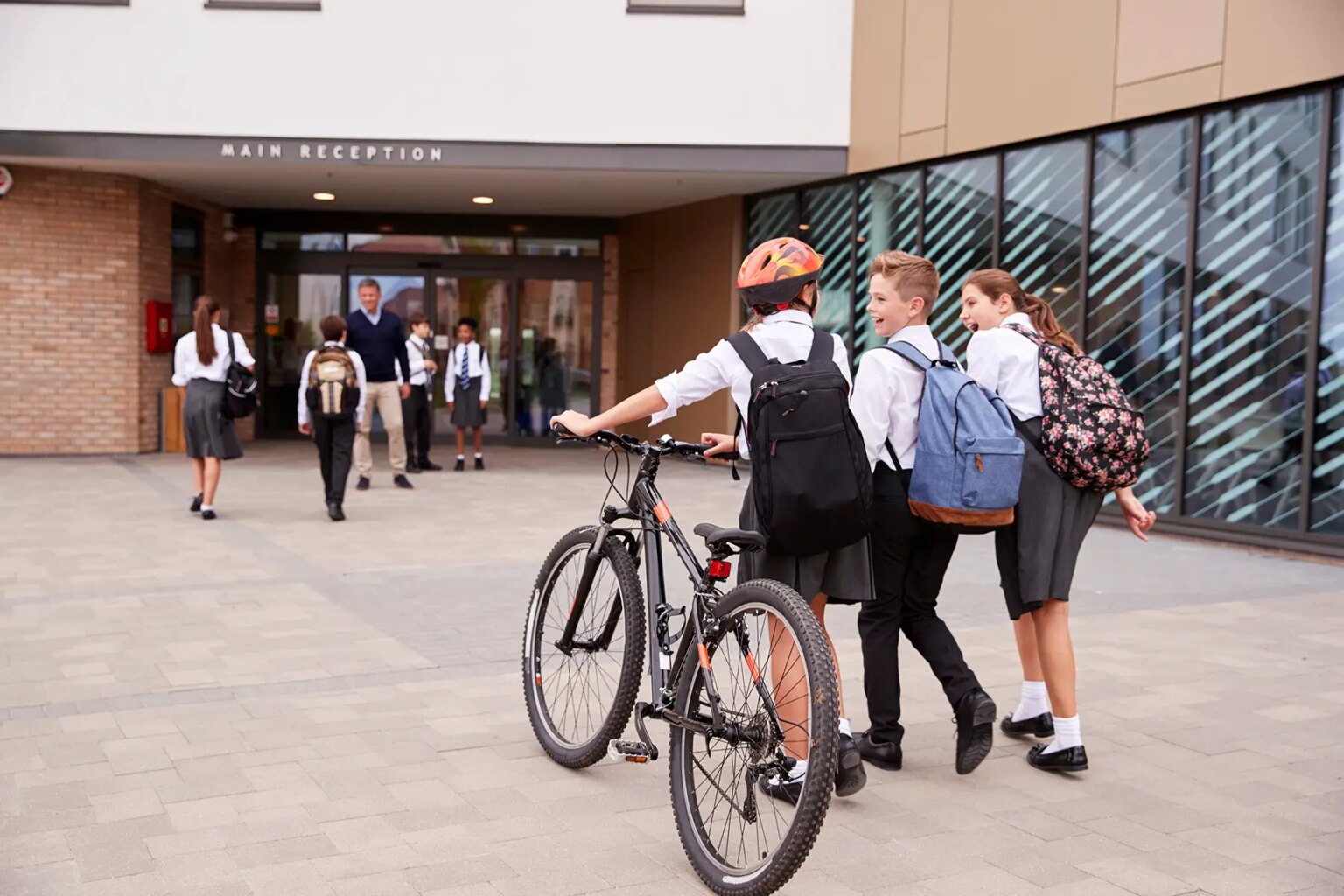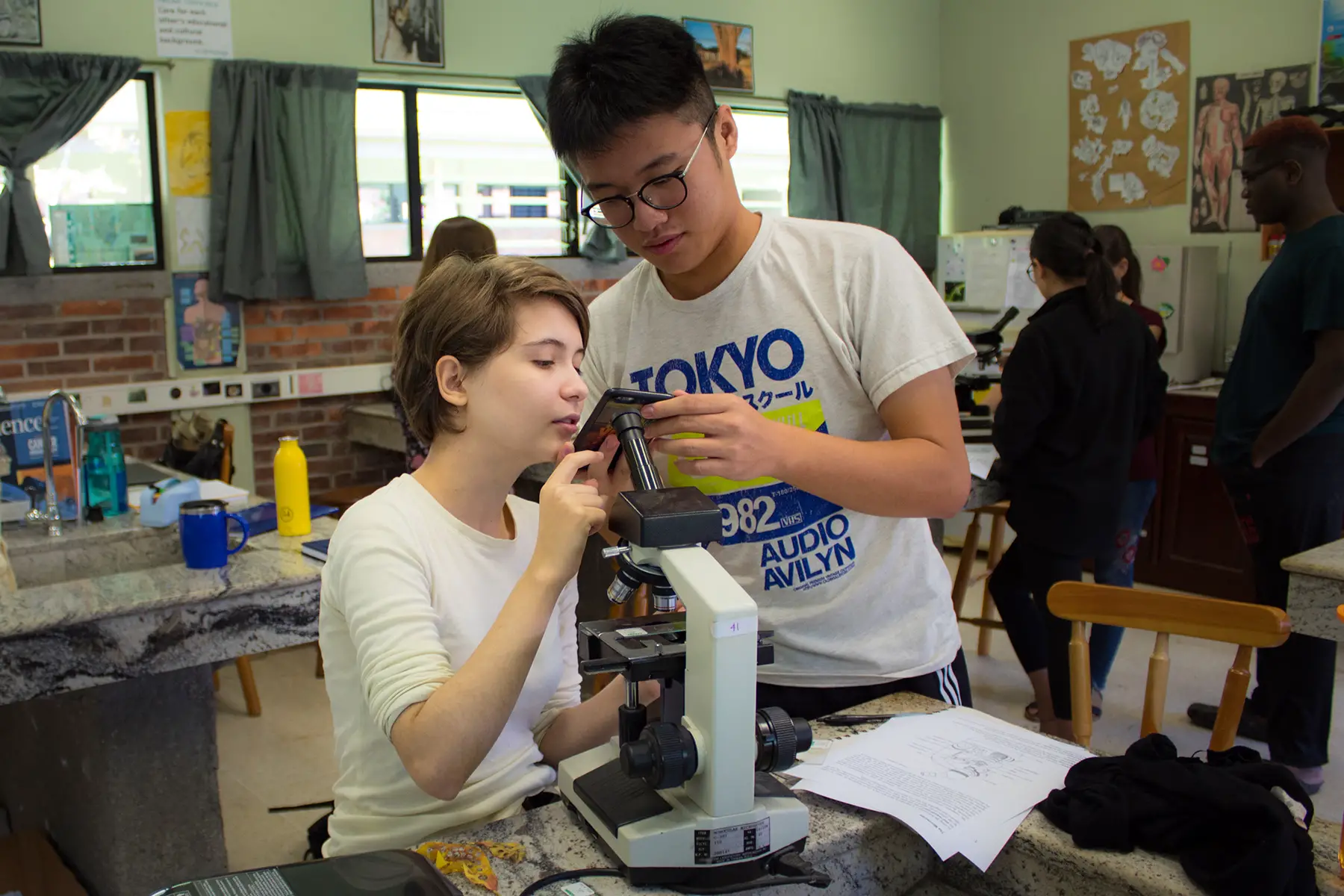International schools in the UK are diverse and offer British and country-specific curriculums, religious-based, or alternative education. Furthermore, they provide internationally recognized qualifications including the International Primary Curriculum (IPC), International Baccalaureate (IB), International General Certificate of Secondary Education (IGSCE), and Advanced Placement (AP). As a result, they are an extremely popular choice among expat parents.
That said, international school fees can be expensive, and with so many options to choose from, finding the right school for your child can feel overwhelming. With this in mind, this guide is here to walk you through the process of making that decision. It includes the following information:
Rosetta Stone
Give your child the gift of another language with Rosetta Stone. As one of the world's leading online language learning resources, Rosetta Stone has a range of courses and programs for inquisitive young minds. With a whole world of languages to choose from, you'll soon find the right language course for your child with Rosetta Stone.
The UK education system
Schools in the UK are either state-funded schools or independent, the latter of which includes international schools. Even though state schools across the country follow a comparable curriculum, there are slight variations in the school systems between England, Wales, Northern Ireland, and Scotland. Still, the compulsory school age for children is between five and 18.
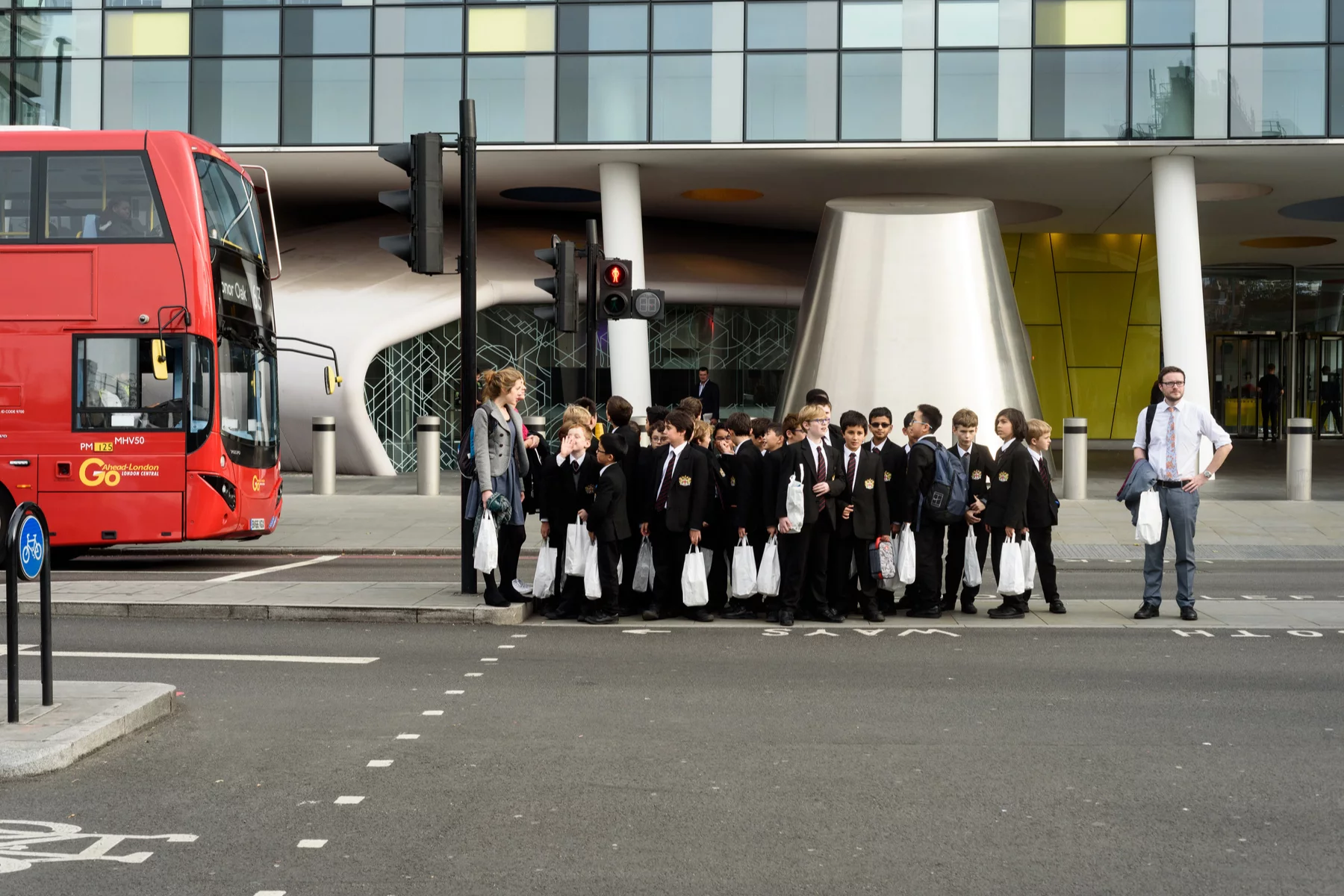
State schools receive government funding and include community schools (local authority maintained), foundation or voluntary schools, academies, free schools, and grammar schools. Conversely, independent and international schools are not subsidized by the government.
Key Stages (KS)
Community schools follow the national curriculum while independent and international schools enjoy more flexibility and freedom in their teaching approach. The national British curriculum is divided into key Stages (KS) which are based on age groups, as follows:
| Age | Year | KS | Exams | Compulsory |
|---|---|---|---|---|
| 3 – 4 | | Early years | | |
| 4 – 5 | Reception | Early years | | |
| Primary | Primary | Primary | Primary | Primary |
| 5 – 6 | Year 1 | KS1 | | x |
| 6 – 7 | Year 2 | KS1 | | x |
| 7 – 8 | Year 3 | KS2 | | x |
| 8 – 9 | Year 4 | KS2 | | x |
| 9 – 10 | Year 5 | KS2 | | x |
| 10 – 11 | Year 6 | KS2 | | x |
| Secondary | Secondary | Secondary | Secondary | Secondary |
| 11 – 12 | Year 7 | KS3 | | x |
| 12 – 13 | Year 8 | KS3 | | x |
| 13 – 14 | Year 9 | KS3 | | x |
| 14 – 15 | Year 10 | KS4 | | x |
| 15 – 16 | Year 11 | KS4 | GCSE | x |
| 16 – 17 | Year 12 | KS5 | | |
| 17 – 18 | Year 13 | KS5 | A-Levels | |
However, school years in Scotland and Northern Ireland are named differently, which can be slightly confusing. Scottish children graduate to secondary school at age 12 (S1), then, at 16 (S4), they sit the Standard Grade exams. Only thereafter, at 17 (S5) and 18 (S6), do they complete their Highers and Advanced Highers. These qualifications are comparable to the English Subsidiary and Advanced Level (A-levels) courses.
In Northern Ireland, the school years begin at Year 1 instead of Reception. Therefore, Year 14 is equivalent to Year 13 in England (ages 17 to 18). The school year starts in August or September and is divided into three terms with six breaks throughout the year. School days typically run from around 08:00 or 09:00 to 15:00 or 16:00.
International schools in the UK
International schools in the UK differ from state schools as they have the freedom and flexibility to set their term dates, choose which curriculum to follow, and set their admission criteria. However, you will need to pay substantial school fees for your child’s education at one of these schools.
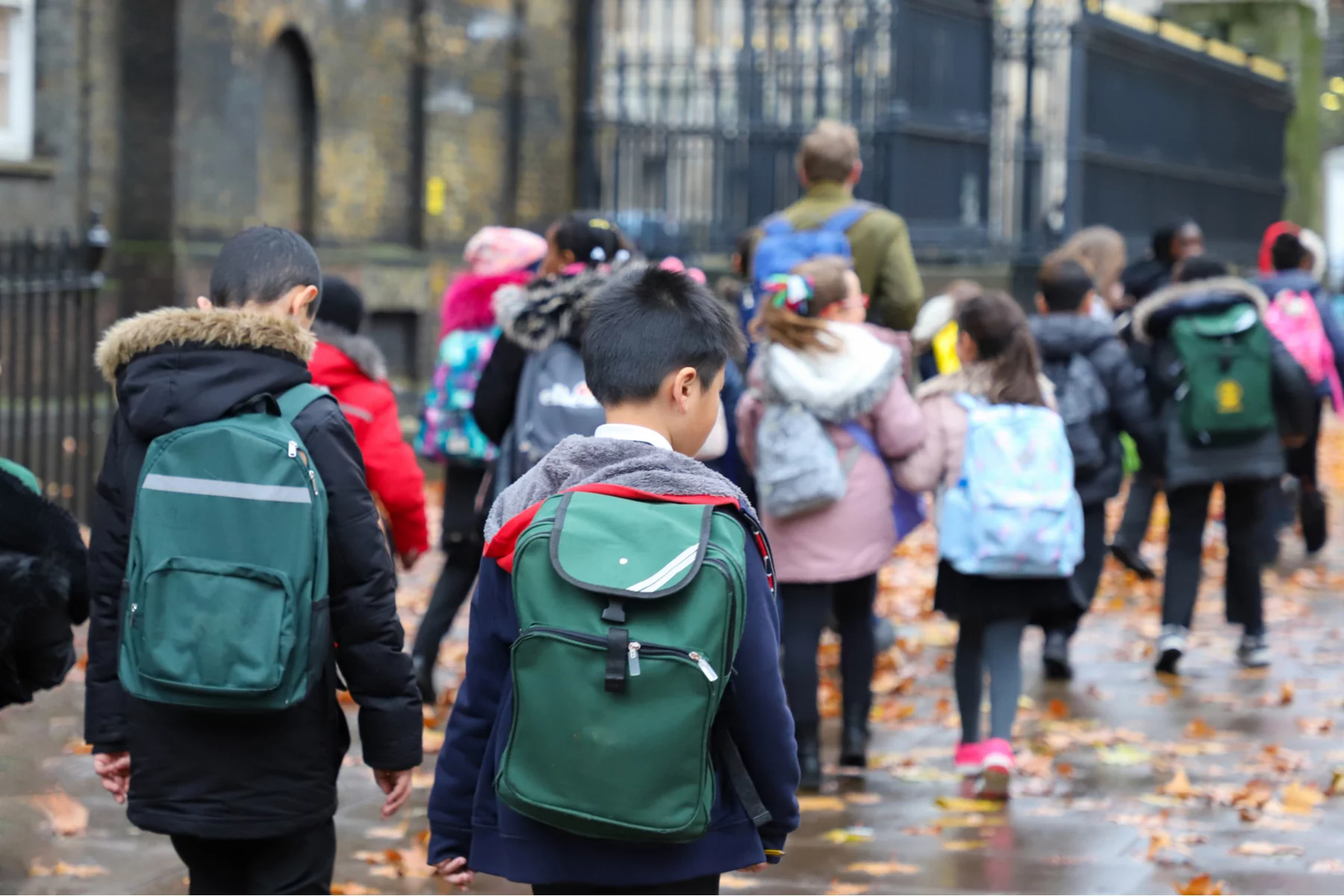
The UK is home to numerous international schools which cover both primary and secondary age groups. However, these are mostly based in London and the surrounding area, including Southern England and the Midlands. In this way, where you live in the UK will largely determine whether or not your child attends an international school.
International schools in the UK fall within the independent school category. Consequently, the Independent Schools Inspectorate (ISI) regulates and oversees them. The Department of Education (DfE) may also commission the Office for Standards in Education, Children’s Services and Skills (Ofsted) to do an inspection in collaboration with the ISI.
Types of international schools in the UK
International Primary Curriculum (IPC)
The IPC is a globally recognized curriculum that prioritizes intercultural awareness, student engagement, and academic excellence. Therefore, a student’s personal and community development relates closely to a subject’s learning goals. Generally, IPC schools follow the UK curriculum but are adapted for international schools, for children aged 5 to 12.
International Baccaleaureate (IB)
In 2021, 5,500 schools offered 7,500 IB programs across 159 countries. This includes the 108 IB international schools in the UK that use English as the instruction language.
These schools offer at least one of the following IB’s four programs:
- Primary Years Programme (PYP) – seven schools
- Middle Years Programme (MYP) – 24 schools
- Diploma Programme (DP) – 97 schools
- Career-related Programme (CP) – 47 schools
Importantly, IB qualifications are widely recognized and accepted throughout the world and grant students entry to the most esteemed universities. Schools offering the IB in the UK include ICS London.
American international schools and Advanced Placement (AP)
Some international schools in the UK follow the American education system. These include the American Curriculum Schools (ACS), the American School in England (TASIS), and the American School in London (ASL).

There are three international schools in the UK that follow the American Curriculum Schools (ACS), as follows:
- London – ACS Hillingson
- Surrey – ACS Cobham
- Surrey – ACS Egham
Similar to the United States, the school years are divided into the following:
- Early childhood and elementary/lower school (ages 4–11)
- Middle school (ages 11–14)
- High school (ages 14–18)
Younger students take MAP (Measures of Academic Progress) tests from grades 3 to 9, assessing reading, language skills, and maths. High school students can also opt to take the Preliminary Scholastic Aptitude Test (PSAT) and Scholastic Aptitude Test (SAT). You can read more about that here.
The American School in England (TASIS) offers both the Advanced Placement (AP) and the IB while the American School in London (ASL) only offers the AP. The AP gives high school students the opportunity to take college-equivalent courses while they are still at school. This not only prepares pupils for universities and colleges in the USA but can also earn them credits and placements.
International General Certificate for Secondary Education (IGCSE)
The IGCSE is an English-language-based examination that is similar to the General Certificate of Secondary Education (GCSE) and aligns with the British educational standards. It consists of a two-year syllabus that begins in Year 10 (age 14) followed by exams in Year 11 (age 15 to 16). Students can choose from over 70 subjects but their choice must include a native and non-native language, maths, and science.

A student needs to obtain a GSCE or IGSCE in order to progress to their A-levels or the equivalent that they require to qualify for university entrance in the UK. Conversely, university applicants need to meet specific IGSCE requirements and achieve the necessary A-level grades for admission in the UK. Therefore, your child’s IGSCE results are really important.
There are three examination boards in the UK – Cambridge, Pearson Edexcel, and Oxford AQA – and exams are held at different times of the year, depending on which board the school uses.
Other national international schools
If you only plan to stay in the UK for a short period of time, then an international school is a great option. These schools are designed to cater to specific nationalities. Furthermore, they prepare children for education in their home countries when they return.
Some of the international schools in the UK include the following:
- American School in London
- De Regenboog School (Dutch)
- De Zeven Eiken (Dutch)
- Den Norske Skolen London (Danish)
- Deutsche Schule London (German)
- Hockerill Anglo-European College (European)
- Instituto Español Vicente Cañada Blanch (Spanish)
- Lycée Français Charles de Gaulle de Londres (French)
- Rikkyo School (Japanese)
- Svenska Skolan London (Swedish)
- TASIS: The American School in England
Religious schools in the UK
Many religious schools in the UK fall under the independent school category. These include Protestant, Anglican (Church of England), Methodist, Catholic, Jewish, Muslim, Christian Science, Seventh Day Adventist, and Quaker schools. Even though faith schools follow a specific religion, many still accept non-denominational or multi-faith admissions.
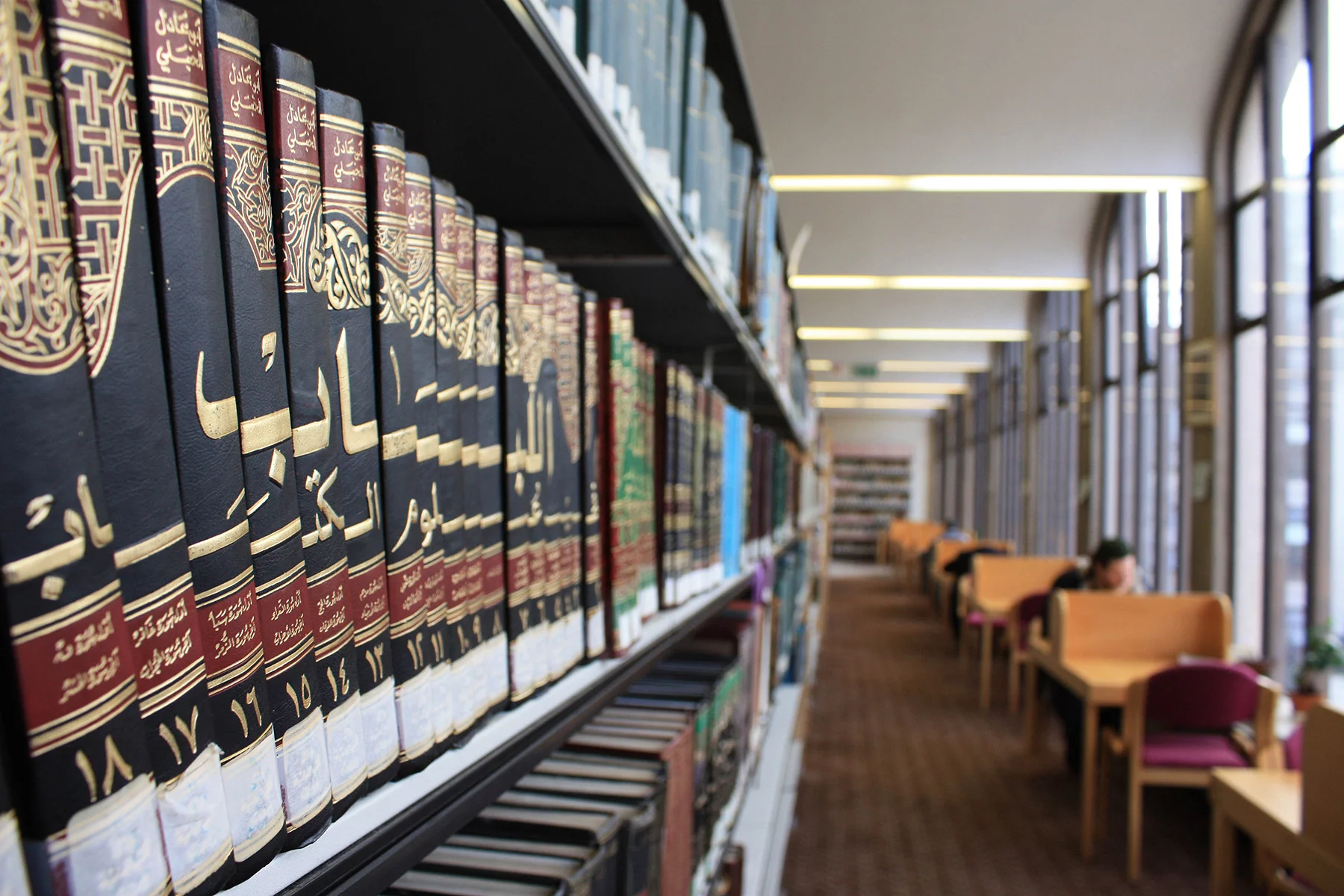
A few specific examples of international faith schools in the UK are:
- Canterbury Kent College (Methodist)
- King Fahad Academy (Islamic)
- Immanuel College (Jewish)
- Leighton Park (Quaker)
- Prior Park College (Catholic)
Method schools in the UK
Alternative pedagogical approaches to education such as Waldorf and Montessori schools are also popular in the UK. However, if you are looking for something even more alternative, there are a few independent schools scattered across the UK that have such a different ethos and teaching approach that they simply cannot be classified under any well-known unorthodox approaches.

These schools include:
In addition, homeschooling is legal in the UK and another popular alternative for international families. You can find more information about this on the Department for Education website.
Online schools
If you want to homeschool or simply want the freedom for your child to continue their education from any location, online schools may be the answer. Therefore, it might be worth exploring the UK’s leading online schools, Interhigh and Person Online Academy.
InterHigh accepts students from the UK and abroad. Therefore, it follows the British curriculum and offers interactive primary, secondary, IGSCE, and A-level courses. In contrast, Pearson Online Academy teaches the American K-12 curriculum for lower, middle, and upper school and offers the Advanced Placement (AP) for college preparation.
Should you send your child to an international school in the UK?
With so many schooling options on offer in the UK, choosing between state or international schools can feel like a challenge. So, to help you make an informed decision, here is a list of key advantages and disadvantages of international schools in the UK.
Advantages
- Offer more extracurricular activities and better facilities
- Provide internationally recognized qualifications
- Have a global community of teachers and students
- Place a strong emphasis on multiculturalism and languages
- Have smaller class sizes and a high teacher-student ratio
- A country-specific curriculum or IB education offers consistency for future moves
- Parents can communicate in their own language
Disadvantages
- International school fees are expensive but you can access scholarships, busaries, and payment plans; some employers subsidize education fees
- Children may integrate less into the local culture and language
- Admissions may assess a child’s academic abilities through an entrance test; therefore, this may place additional pressure on your child
- The majority of schools are located in London and across southern England and the Midlands, so you might not find one in your area
How to choose an international school in the UK
Because each school caters to different specialties and offers a distinct style, deciding which one is best for your child can be a challenge. Therefore, you might want to consider the following factors:
- Location: in and around London, your choices are broad, but elsewhere your options are limited. However, some schools offer boarding facilities.
- Education system: which curriculum or teaching style best suits your child?
- Main languages spoken: some schools offer bilingual education, but others offer additional languages as subjects.
- Qualifications available: students could study for different certificates in the same school, particularly in preparation for higher education in a specific country.
- Reputation: this can be tricky if you don’t yet have a network, but The Good Schools Guide can help.
- Academic results: for secondary education, it’s worth checking the percentage of students who continue to higher education.
- Fees: these can range from around £8,000 to over £49,000 a year, however some employers subsidize education fees.
- Admission and enrolment procedures: some schools require academic, language, and personality-focused assessments before registration.
- Extracurricular activities and facilities: schools may offer various clubs, activities, trips, and even summer camps or language courses.
Financial aid and scholarships for international schools in the UK
International schools in the UK are not funded or subsidized by the government. Therefore, on average, a family could fork out around £20,000 per year per day student. Moreover, boarding costs will be higher, depending on how many days a week a student stays in residence.
That said, some schools offer means-tested school fee assistance, and there are also bursaries and scholarships available to make them more accessible. Furthermore, some companies pay the education costs of their international employees’ children.
Here are a few examples of school fees in 2021 (excluding administration, deposits, and other extras):
| School | Day fees/year | Boarding & Tuition/year |
| ACS Cobham | £19,780–28,768 | £41,200–49,790 |
| Leighton Park | £20,235–25,785 | £27,525–39,330 |
| TASIS | £20,900–26,375 | £48,900 |
| King Fahad | £5,990–50,000 | No boarding |
| Deutsche Shule London | £8,750 | No boarding |
| St. John’s College | £9,975–13,125 | £28,050–32,250 |
Useful resources
- Gov.uk – the government website on education in the UK
- Gov.uk – the website for the Department of Education (DfE)
- International School Search – a global search for international schools
- International Schools Database – find international schools in London
- The Good Schools Guide – search and compare schools near you
- IB World Schools in the UK – search for schools that offer IB programs
- Independent Schools Council Bursaries – search for financial aid
- Independent School Inspectorate (ISI) – search for an independent school report
- Ofsted – provides school assessment reports
- Gov.uk – find and compare schools based on Ofsted reports
